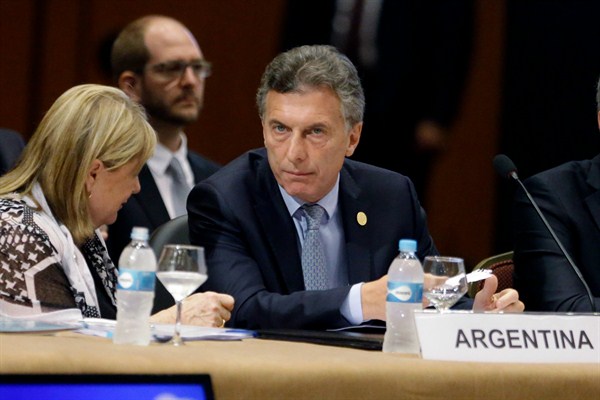Argentina’s new president, Mauricio Macri, inherits a host of problems and points of friction at home and abroad from his predecessors, Cristina Fernandez de Kirchner and, before that, her late husband, Nestor Kirchner. But in contrast to the daunting domestic economic issues his new administration faces—just 0.4 percent economic growth in 2015 and an economy projected to shrink by 0.7 percent in 2016, on top of inflation estimated at 20 percent—the international hangover of nearly 13 years of Kirchner governments looks relatively easy to fix. International spats were an extension of the angry, polarizing rhetoric and policies of Kirchnerismo that voters rejected on Nov. 22. In the coming year, Macri’s administration must deal with three specific problem files: mending fences with the United Kingdom over Argentina’s Falkland Islands saber-rattling; resolving the unpaid debt with American hedge funds; and improving relations with the United States. Even with some political restraints at home, the former mayor of Buenos Aires and scion of a well-known Argentine businessman should be up to the task, if he can apply his no-drama demeanor that won him the presidency to Argentina’s foreign policy, which is in sore need of repair. The trouble goes back to Nestor Kirchner’s election in 2003, which came in the midst of one of Argentina’s worst economic disasters. In January 2002, the previous government had been forced to end its strict dollar-to-peso exchange rate, wiping out citizens’ savings and leading to a contraction of GDP of almost 20 percent from 1998 to 2002. Shortly after reaching office, Kirchner declared default and stopped all payments on the country’s debt.
How Macri Can Fix Argentina’s Foreign Policy Problem Files

